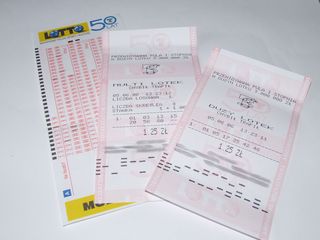Sport and Competition
Positive Mood Makes People Gamble More
Your mood affects your willingness to take risks.
Posted March 30, 2016

In order to take a risk, you have to feel as though that risk is going to pay off in some way. Students go to college, because they believe the time and money they invest in their education will give them greater earning potential later in life. Entrepreneurs start businesses believing that those businesses will succeed. People go to casinos, because there is a chance they may win money.
There are many factors that may influence whether someone things a risky venture will succeed. Students look at the jobs that previous college graduates have gotten. Entrepreneurs have faith in their business plan and their ability to lead a company. That is, people do use information about factors that predict success to help them make choices in risky situations.
However, when people aggregate the factors that make them confident in a risky situation, they often do so in a way that creates an emotional response. Confidence in a risky choice is not just based on information, it is also based on a feeling that a course of action will be successful. As a result, other factors that influence feelings can also play a role in risky choice.
This idea was explored in a cool paper by my former PhD student Ross Otto along with Stephen Fleming and Paul Glimcher in the March, 2016 issue of Psychological Science.
They wondered whether environmental factors that produce a positive mood might affect risky choices. To test this possibility, they examined purchases of fixed-odds lottery tickets in residential neighborhoods in New York City. A fixed-odds lottery is a game like Pick 4 in which the payoff is constant so that the odds of winning do not change from week-to-week. Residential neighborhoods in New York City are useful, because most New Yorkers don’t drive, and so they tend to shop near their homes.
In order to make sure that they did not find spurious relationships between environmental factors and lottery purchases, the researchers performed exploratory analyses on purchase data from 2011, and then ran just the successful analyses again on data from 2012.
Otto and colleagues reasoned that two factors that vary day-to-day might affect the moods of New Yorkers. First, the success of New York sports teams might affect mood. Second, the weather might affect mood.
Interestingly, these researchers suggested that it is not sports team victories or sunny days that create positive mood. Instead, it is whether the victories or the sunny days were expected. That is, when a local team has won several games in a row, the next victory feels like a continuation of a streak. But, when the local team has lost several games in a row, the victory feels unexpected. Lots of research on positive mood suggests that unexpected positive outcomes give a bigger boost to mood than expected positive outcomes.
They calculated how expected sports-team victories and sunny days were by using a weighted average of recent performance, where the most recent games (or amount of sun) factored more heavily into the average than more distant outcomes. Then, they used those averages to predict lottery ticket purchases the next day across roughly 160 different ZIP codes across the boroughs of New York City.
For both the exploratory analyses in the data for 2011 as well as the confirmatory analyses for the data in 2012, unexpected sports team success and unexpected sun increased lottery ticket purchases. As a control analysis, the researchers also looked at sports team performance for teams in other major cities like Chicago, Dallas, and Los Angeles. Unexpected victories by these teams did not predict lottery ticket purchases in New York City.
Interestingly, this effect was obtained in both high-income and low-income neighborhoods. Consistent with previous work on lotteries, people in low-income neighborhoods tended to spend a higher proportion of their earnings on lotteries than those in high-income neighborhoods. But, the influence of sports victories and sun was the same across neighborhoods.
What is interesting about this analysis is that most people are probably unaware that their mood has been boosted by unexpected good weather or unexpected sports victories. Yet, these environmental factors are making people feel good, and that mood is affecting decisions about whether to take a risk.
Obviously, there are many factors that influence whether someone will make a risky choice and the effects in these studies are small, even though they are highly statistically reliable.
These data highlight two important features of risky choices. First, the feeling of confidence that helps you decide to take a risk really is an emotional response rather than a purely information-based response. Second, when you are considering a risky venture, give yourself some time to work through it before making a decision. That way, short-term environmental factors that may be affecting your mood will have less influence on your choice than longer-term beliefs about your prospects of success.
Follow me on Twitter.
And on Facebook and on Google+.
Check out my books Smart Thinking and Habits of Leadership
And my latest book Smart Change.
Listen to my radio show on KUT radio in Austin Two Guys on Your Head and follow 2GoYH on Twitter and on Facebook. The show is available on iTunes and Stitcher.




